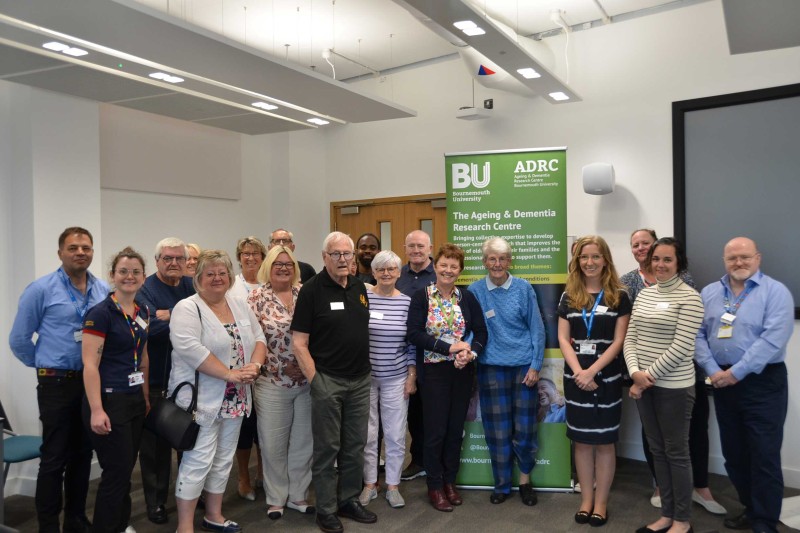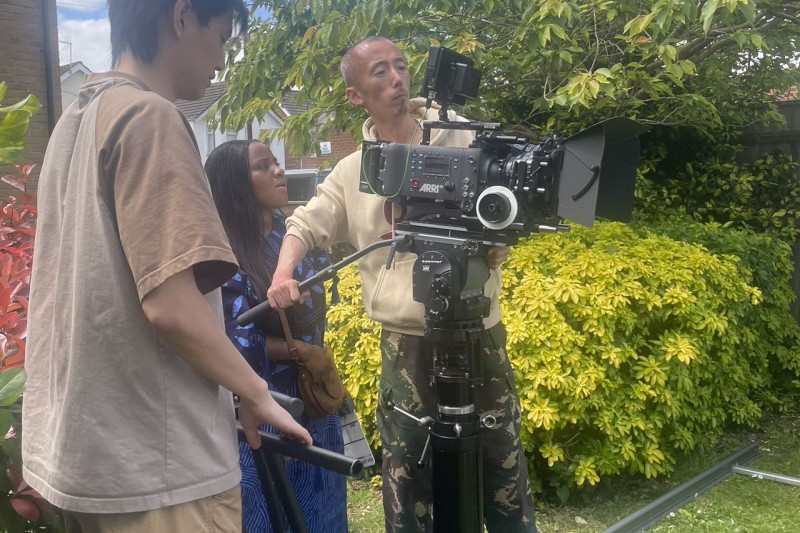A Bournemouth University research project will explore the impact of menopause on autistic people.
The three-year research project - funded by Henpicked: Menopause in the Workplace in the form of a PhD studentship - will start in June 2023, thanks to a £56,000 donation from the organisation, partly raised at its inaugural industry-recognised Menopause Friendly Employer Awards.

The wide-ranging symptoms of menopause can pose many challenges to people at home and work. Recent heightened awareness in society and in the workplace is certainly helping people understand and appreciate the impact of menopause with support becoming more readily available.
A potentially life-changing experience for anyone, menopause can have a far greater impact on autistic people for whom the changes in mood, physical symptoms and cognitive ability can be nothing short of terrifying.
Little by way of medical research has been undertaken to explore the menopausal experiences of autistic people, in part because until relatively recently autism was believed to affect mainly men. The support needs of autistic adults are also more and more overlooked as they age.
This is all about to change as Professor Julie Turner-Cobb and Dr Rachel Moseley head up a team at BU to research the effects menopause has on autistic women and people with ovaries.
The research will compare the experiences of neurodivergent and neurotypical people at different stages of the menopausal transition.
“We need to know why people who are going through menopause experience particularly difficult times if they are autistic,” said Professor Turner-Cobb.
“Our previous research here at Bournemouth University involved autistic people who grew up in a time when autism wasn’t recognised in girls, women and female-presenting people,” she explains. “These individuals grew up feeling, and being seen as, ‘different’, bad or ‘broken’, and, as such, they would have developed their own coping mechanisms to deal with life. When menopause hit, their coping mechanisms often stopped working and it was at this point that some sought a diagnosis.”
Their new research will involve 500 people in total, both autistic and non-autistic, aged between 40-60 years, to cover the main age bracket for perimenopause and through to post menopause. The aim is to try to unpick which factors are responsible for driving the differences in menopausal experiences between autistic and non-autistic people.
“Autistic people struggle with change and with emotion regulation and other cognitive abilities,” added Dr Moseley.
“They crave close, supportive relationships but often lack them. They often struggle to communicate with medical professionals, leaving them less able to access the healthcare they need. This is despite experiencing poorer physical and mental health and being at greater risk of self-harm and suicide. The stark findings from research are that on average, autistic individuals die between 16-30 years earlier than non-autistic counterparts, with suicide a leading cause of death. This is why it’s crucial to support the wellbeing of autistic adults.”
The new research is being funded by Henpicked: Menopause In The Workplace, an organisation which strives to promote better understanding of menopause and facilitate greater support for those who experience it, both in and out of the workplace.
“This research is both vital and ground-breaking,” says Deborah Garlick, CEO and founder of Henpicked: Menopause In The Workplace. “I applaud Bournemouth University for tackling the issue of how menopause impacts autistic people. I hope their findings can be used to help employers, communities and society as a whole better support autistic people through menopause. It is a tremendously worthwhile programme.”
Dr Moseley and Professor Turner-Cobb hope that their findings will be able to be used to identify strategies and early interventions to help prepare autistic, and non-autistic, people for menopause.
“We cannot thank Deborah and her team enough for stepping up with the funding we need to get our research underway,” says Professor Julie Turner-Cobb. “By understanding how and why menopause affects autistic people more keenly, we can help avoid them having a negative experience, improve their quality of life and achieve a greater sense of wellbeing. Menopause is, for some, a crisis point which is actually life-threatening for them: by putting appropriate support in place we could potentially help save extreme distress and even lives.”



